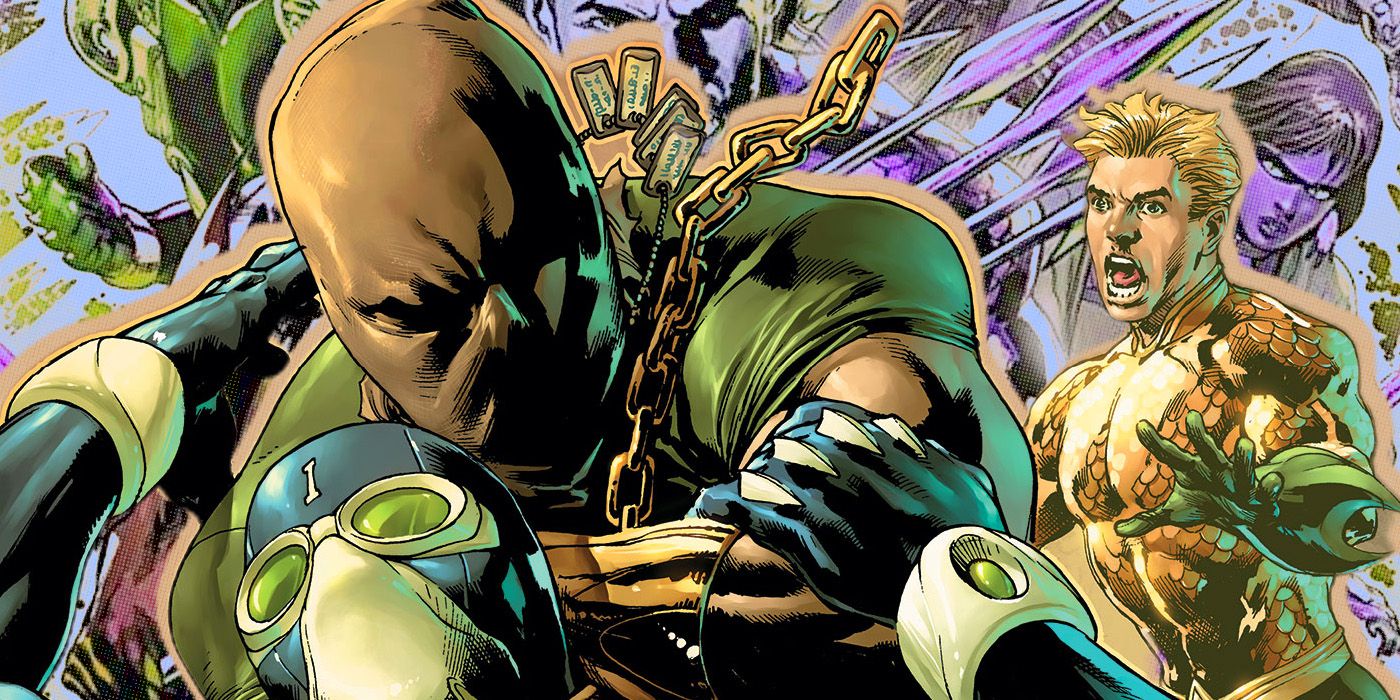Aquaman’s original team of superheroes has a member who regularly struggles with very real feelings of loss and survivor’s guilt.

When Aquaman isn’t protecting the world’s oceans or standing side by side with the Justice League, he can often be found fighting alongside the Others. This understated band of unsung heroes may not have the same powers of strength, speed or heat vision as the Justice League, but what they do have in abundance is heart.
With members drawn from across the globe, the Others fight with a combination of finely honed skills, strange powers and the artifacts of ancient Atlantis. But where the Justice League is often found contending with higher profile threats to the Earth, the Others face off against more personal menaces. Case in point, Prisoner of War, a former US soldier who carries the spirits of his fallen comrades with him, and the Operative, a master of espionage with more skeletons in his closet than an average cemetery.
DC’s Prisoner of War Has a Tragic History
Beyond simply fighting alongside the forces of good, however, Prisoner of War provides readers with an exploration of the consequences of warfare. Besides the Atlantean artifacts he wields, he has the ability to commune with the ghosts of soldiers lost in his presence. As such he is a living example of survivor’s guilt, and it is this guilt that drove him to step beyond the confines of regular heroism. His very existence in the shadow of those he has lost examines the often-overlooked consequences of survival. His journey shows that despite emerging physically unscathed, the mental, and metaphysical, scars still run deep.
Prisoner of War introduces readers to the emotional fallout of a hero’s journey through his attempts to come to terms with his past, and those he has left behind. In Aquaman and the Others #2 (by Dan Jurgens, Lan Medina and Allen Martinez), Sky Alchesay, who can see Prisoner of War’s ghosts, and the Operative, a man who has spent a lifetime fighting, killing and double-dealing, encourage him to let go of the past and embrace the future. This prompts him to take more proactive steps toward breaking free from his guilt.
RELATED:A Classic Aquaman Story Hints At A Dark Fate For The King Of Atlantis
Prisoner of War Proves There is Strength in Vulnerability
In the end Prisoner of War only manages to find a measure of peace when he reaches out to the families of the spirits he carries with him. This acceptance of the past engages with the true-to-life maxim that the best way to honor the fallen is to lead a life well lived. Reconciling the Operative’s “let the past die” mentality with the overwhelming guilt experienced by the Prisoner of War. Ultimately, he presents and examines the emotional fallout of both super and regular heroism.
Prisoner of War goes a step further by demonstrating how that fallout can be overcome. What could have remained a disheartening example of the costs of war ends up instead as an underappreciated message of hope. It is in this way that Prisoner of War, and the Others in general, manage to succeed in showing the more vulnerable side of the caped community that larger than life teams like the Justice League can sometimes overlook.










